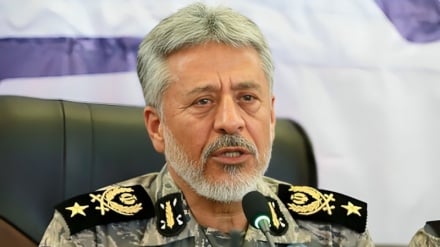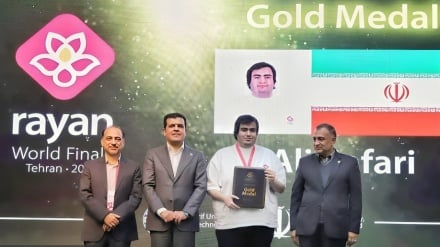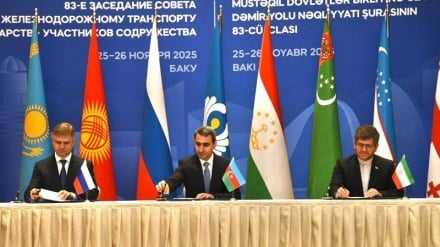UN spokesperson: JCPOA members should work to strengthen diplomacy
-

UN spokesperson Stephane Dujarric
Pars Today – In response to a letter from Iran, Russia, and China to the UN Security Council and the Secretary-General, the United Nations spokesperson stated that JCPOA members should make efforts to strengthen the path of diplomacy.
In response to a question from an IRNA journalist regarding a letter from Iran, Russia, and China to the UN Security Council and the Secretary-General—stating that the actions of three European countries to activate the “snapback” mechanism violate the provisions and procedures outlined in the JCPOA and UN Security Council Resolution 2231, and have not completed the dispute-resolution mechanisms within the JCPOA, thereby calling for the mechanism to be nullified—UN spokesperson Stephane Dujarric said:
“The United Nations is not a party to the JCPOA, but the Secretary-General’s message is that Iran and the other JCPOA members should use this opportunity to strengthen the path of diplomacy.”
At the same time, Sang Jin Kim, South Korea’s ambassador to the UN and current President of the Security Council, noted that there are differing views and interpretations regarding Resolution 2231.
He added that “at present, it is not possible to predict what will happen; the aim is to consult in a transparent, honest, and close manner with the relevant parties.”
The three European JCPOA members—Britain, France, and Germany—who so far have not fully met their obligations under the nuclear agreement with Iran, officially sent a “notice” to the UN Security Council on August 28, 2025, activating the snapback mechanism to reinstate anti-Iranian sanctions. They stated that, under certain conditions, they are ready to negotiate with the Islamic Republic of Iran regarding the nuclear deal within the next 30 days, a process that could halt the re-imposition of sanctions.
Iran’s Foreign Minister Seyed Abbas Araghchi immediately sent a letter to the UN Security Council and the Secretary-General, addressing the European “troika’s” misinterpretation of the dispute-resolution mechanism outlined in the JCPOA and issues related to UN Security Council Resolution 2231. He stated that Security Council members must reject improper political maneuvering and uphold the integrity of international law and the authority of the Council.
In a joint letter, the Foreign Ministers of Iran, China, and Russia rejected the three European countries’ attempt to revive rescinded UN Security Council resolutions against Iran. They emphasized that the notice sent by the European trio to the Security Council contradicts the procedures established in the JCPOA and Resolution 2231, lacks legal basis, and should be considered null and void.


